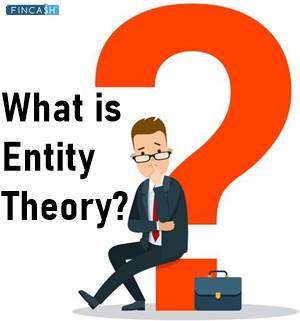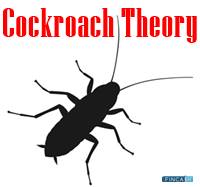
Table of Contents
What is Entity Theory?
Entity theory is a fundamental notion that assumes an organization's actions are independent or different from their owners. Only by doing so can one determine a company's financial results and financial situation. According to this concept, the owners are not liable for the organization's obligations; hence their assets should not be mixed up with it.

The assumptions of this theory safeguard owners and shareholders from having to pay the company's obligations or loans. The undeniable advantage of this is that it eliminates the chance of losing any personal belongings.
How Does Entity Theory Work?
The limited liability concept, which applies to corporations and limited liability companies (LLCs) rather than sole proprietorships, is closely related to the entity theory. It asserts that business owners have a distinct identity from their businesses and are not personally accountable for corporate obligations to creditors.
Through the separation of ownership and control, the entity theory is critical to the successful running of trade. To avoid Accountability to creditors, the owners' finances should not be linked to the firm.
Entity Theory in Accounting
The entity theory represents the notion of a company as an autonomous and unique entity from the viewpoint of Accounting. Accounting must employ individual accounting records for the corporation in order to follow this principle, and the liabilities and assets of the owners or any other entities must be completely excluded.
The following concepts ensure that the ledgers of a certain entity are visible. The entity theory examines all transactions involving a given legal unit to see how they affect that entity. The profit and loss account is used to comprehend revenue and analyse the company's performance over time.
The accounting equation for a company’s Balance Sheet showcases the firm as an entity is as follow:
Assets = Liabilities (All current and long-term debts and obligations) + Stockholders’ Equity (Assets available to shareholders after all liabilities)
Talk to our investment specialist
Entity Theory of Intelligence
The entity theory of intelligence holds that intelligence is a fixed attribute, a personal trait that cannot be altered. This hypothesis asserts that while humans can learn new things, their core intellect remains unchanged. According to entity theorists, if one's perceived ability to accomplish a task is strong, the likelihood of mastery is similarly high.
As a result, if perceived competence is poor, there is little perceived prospect of mastery, which is commonly referred to as a "learned helplessness" mentality.
Entity Theory of Partnership
The entity theory of partnership is based on the idea that a partnership is a legal entity apart from its owner. The owners' point of view is the centre of attention in this theory, and it is represented in the way accounting records are kept, and financial statements are generated.
The fundamental goal of the proprietary theory is to calculate and analyse the net value of the proprietor.
The Bottom Line
Heading towards a conclusion, according to the entity theory, a corporation is commissioned by a country or state and has all of the rights and benefits that the law of the Land grants. It exists without the help of its owners, officials, creditors, workers, consumers, government, or society at large.
Despite its detractors, the entity theory has influenced the accounting and transparency requirements of limited liability firms. Concerning the link between owners and entities, there has also been a contrast between the entity theory and the proprietary theory.
All efforts have been made to ensure the information provided here is accurate. However, no guarantees are made regarding correctness of data. Please verify with scheme information document before making any investment.












